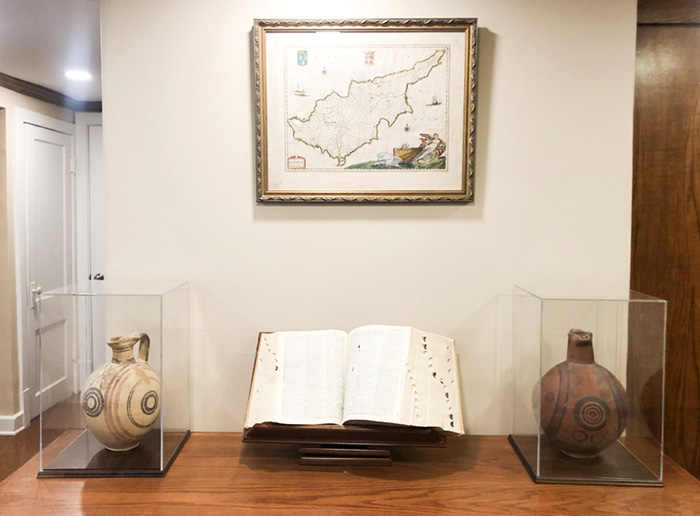The Word, the Language, the Dictionary
The Word, the Language, the Dictionary
By Peter Walker, Florida, United States
Early last year I read an article in News Online about the new library in the basement of Urantia Foundation, which contains books and materials assumed to have been used by the revelators in the formation of certain Urantia Papers. Like many readers, I often wondered about the human origins of such material, occasionally reviewing websites like Square Circles where Matthew Block correlates certain sections in The Urantia Book with human sources. The library at Urantia Foundation preserves the works of these “source authors” in their original form, and is an invaluable collection, especially for future generations.
Having studied The Urantia Book for years, I continue to marvel at the quality of the English language. The book is a masterpiece of prose literature that has its own poetic cadence, with each author representing their thoughts through precisely written words. Even the style of each author is unique—from a Divine Counselor to a Mighty Messenger to the Midwayer Commission.
It was 30 years ago, in the summer of 1989, I introduced The Urantia Book to a friend who owned a vintage English dictionary. Curious about the meaning of the word “Urantia,” and realizing that such a word is not defined, we searched through similar words, and determined that Urantia means “of or belonging to the Heavens.”
The word “Urantia” can be broken into two separate parts: Uran and tia. I found two similar words whose specific definitions are no longer used in the English language today, even having been removed from the current Webster’s dictionary. These words are “Urania” and “Uranian,” which are related to the root word Uran. The definitions in particular are as follows.
Urania (Latin fr. Greek) "heavenly, heaven" (Greek) Ourania, Ouranios "heavenly" Ouranos - "heaven"
Uranian "Of, pertaining to, or concerned with the heavens, or the science of astronomy; astronomical"
Looking at the definition for tia, it comes from the original word "cy" which means:
-cy (-tia [Latin, Greek]) "signifying state, quality, office, rank"
I am not an etymologist, but looking at the context of the word “Urantia” I think it would have its origin as an adjective forming the actual use as a proper noun. Therefore, I postulated the meanings as follows:
u·ran'tia \yu̇·rān'shə\, adj. 1a: [L., fr. Gr.] of or belonging to the Heavens; b: having a heavenly status or quality
U·ran'tia \yu̇·rān'shə\, n. (cosmology) 1a: a name designating the planet Earth; b: the Earth within the Heavens
The final definition for Urantia, “the Earth within the Heavens,” has the words “Earth” and “Heavens” in proper case designating specific reference and location. Choosing the word “within” took some liberty of thought, but it anticipates what the revelators envisioned in formulating a meaning, that the future of Earth will evolve into a status of light and life. As such, Urantia would embody a state of “heaven on earth,” and in essence be a member of the Heavens in the eternal future of the grand universe.
A vintage dictionary is also invaluable for referencing changes in language. Even now, 84 years after the Papers were indicted, the English language is altering the meanings of certain words. For example, the word “universe,” which still includes the definition of “a galaxy or group of galaxies” as relevant to the Urantia Papers, is now different from the common definition used today that represents the millions of galaxies in their entirety, thanks in part to advances in astronomy.
Realizing the importance of a dictionary from the same period as the Urantia Papers, and knowing of the new library at the Foundation, I thought to donate one to their collection. After reviewing various options, I decided that Webster's New International Dictionary: Second Edition was the ideal choice, having been first published in 1934, just one year prior to when the Urantia Papers were indicted.
But where would this oversized dictionary reside? I decided it needed a suitable stand as well, so I had one made by a craftsman in Oregon. The next time you visit Urantia Foundation, I hope you will enjoy perusing this dictionary and perhaps even think of me.
Given the evolution of language and the progress of our planet, it is inevitable that a unification of languages will occur. In Paper 55, discussing the golden ages of light and life, it states.
During this age of light and life the world increasingly prospers under the fatherly rule of the Planetary Sovereign. By this time the worlds are progressing under the momentum of one language, one religion, and, on normal spheres, one race. 55:3.1 (624.7)
Although the sun now sets on the British Empire, its legacy of spreading the English language throughout the world remains. Most likely, the English language will become the one language of Urantia, while continuing to be influenced by other languages and cultures. In time, standardization of the English language will bring about further unification and direction.
In the eras to come, avid students of The Urantia Book will reference the English language as it was used during the times of the creation of the Urantia Papers. Eventually, vintage dictionaries, such as the one now in the Foundation’s library, will be available online so that definitions of the English language from the twentieth century will be accessible to everyone.
Ultimately the revelation contained in The Urantia Book is not just about the words, but the insights they represent that transform concepts into spiritual meanings and values. Like music, it is not just the notes, but the changes between the notes, that constitute the unforgettable melody.

1934 Websters New International Dictionary